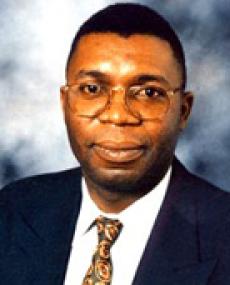
Sydney Mufamadi was born on 28 February 1959 in Alexandra Township, Johannesburg. Mufamadi is the eldest of the four children of Masindi and Reuben, who are now both pensioners. He grew up in Meadowlands (Gauteng) and in Tshisahulu (Venda). In Venda young Sidney first looked after his grandfather’s cattle and then attended school. His father worked in Johannesburg as did his mother who sold home-brewed alcohol to supplement the family income. Mufamadi’s mother was arrested for illegally selling alcohol and he saw the unjust system first-hand at an early age. In 1973 Mufamadi passed Std. 6 with distinction, and in 1977 completed Std. 8 at Kwevha High School in Shayandima, Venda.
In 1976 with the spread of the Soweto Uprising, into other areas of the country, Mufamadi became a member of Zoutpansberg Students Organisation, which led the boycotts in Venda during October 1977. Many student leaders were arrested, and others, including Mufamadi, went underground. When the schools re-opened he was refused re-admission and was briefly prevented by the apartheid state from completing his schooling. He moved to Johannesburg and enrolled at an international Correspondence College. In 1977 he joined the African National Congress (ANC), in the next year he was a founder member of the Azanian People’s Organisation (AZAPO), and in 1981 he joined the South African Communist Party (SACP). His involvement in AZAPO led to a two-month detention without trial at John Vorster Square, Johannesburg, under section 6 of the Terrorism Act.
In 1980 Mufamadi worked as a private teacher at Lamula Secondary School, Soweto, where he assisted members of the Congress of South African Students with political activities. In 1981 he left the teaching profession to work as a messenger for a firm of attorneys and subsequently joined the General and Allied Workers Union (GAWU) and participated in the June 16 stay-away of that year. His employer saw a newspaper clipping of Mufamadi addressing the workers, and he was fired for taking part in political activities. He worked voluntarily for GAWU and in 1982 and again in 1984 was elected General Secretary of the organisation. In 1983 he attended the launch of the United Democratic Front (UDF) in Cape Town, and was later elected Transvaal publicity secretary of the organisation, a position he held until 1990. In 1984 he was detained twice in the Ciskei during April and again in September.
Following the successful Transvaal regional stayaway in November 1984, Mufamadi was subpoenaed to appear as a state witness at the trial of some of its organisers. However, when some of the accused fled the country, charges were withdrawn and he was not called to testify. In 1985 when the state of emergency was declared, Mufamadi operated underground to avoid detention, resurfacing to help organise and attend the December 1985 launch of the Congress of South African Trade Unions (COSATU) in Durban. He was elected Assistant General Secretary at its inaugural rally. He operated underground from June 1986 to October 1986, but openly resumed his work despite the continuing state of emergency. He was again detained on 8 June 1987 for political activities.
In June 1988 Mufamadi headed a planning committee to organise an anti-apartheid conference in Cape Town, which aimed to include delegates from a broad spectrum of anti-apartheid organisations. On September 1988 the government prohibited the holding of the conference and restricted the organisers of the conference from entering Cape Town for a ten-day period. In January 1990 he travelled with the Rivonia Trialists to Lusaka, Zambia to meet with the African National Congress Executive Committee.
In 1991 he was elected to the party’s central committee. At the ANC congress held in Durban in July 1991, he was elected to the party’s National Executive Committee (NEC) and to serve on its working committee. In 1991 he did not stand for re-election as COSATU Assistant General Secretary. He was an SACP delegate at the Convention for a Democratic South Africa (CODESA) working group dealing with the future of the independent Bantustans/ homelands. Mufamadi was appointed Minister of Safety and Security in the Government of National Unity in 1994, after having served on the sub-council on law and order of the Transitional Executive Council. Mufamadi is currently the Minister of Provincial and Local Government, a position he has held since 1999.
Mufamadi currently lives in Johannesburg with his wife Wendy and two children. In September 1998 his daughter, a matric student at Fourways High School, was embroiled in a theft scandal. It was estimated that R48 000 had been stolen over a period of a year. Mufamadi moved quickly to avert the school’s intended expulsion his daughter, just prior to her final exams. He placed pressure on the school via the Minister of Education, Sibusiso Bengu, and his Gauteng Education MEC Ms. Metcalfe, and the school was ruled out of order for ‘trying to gain cheap publicity over the issue’. Mufamadi junior and three others issued an apology, thanking the school for the chance to write their exams.
Following the removal of Thabo Mbeki as President of the country by the ANC, Mufamadi tended his resignation as Minister in September 2008.